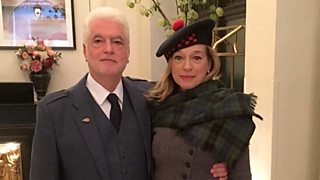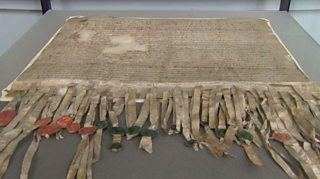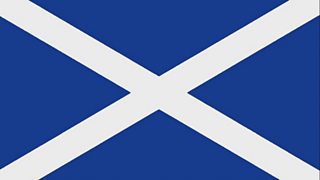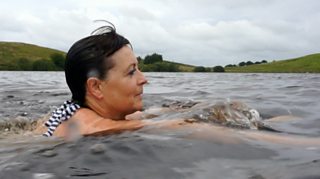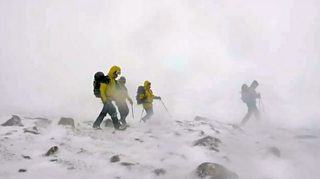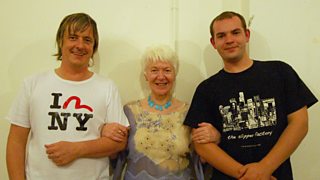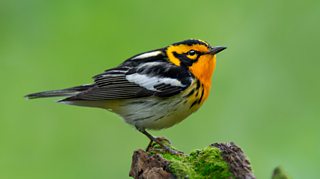How the Declaration of Arbroath brought Hugh MacDiarmid and Malcolm X together
The poet and radical American activist shared a view espoused in one of the most important documents in Scottish history.
On the 6th April 1320, a document was drafted in Arbroath Abbey which set out Scotland's right to be an independent, sovereign state. Known as the Declaration of Arbroath, it was signed by a group of noblemen and sent to the Pope. It contained the famous lines:
"As long as but a hundred of us remain alive, never will we on any conditions be brought under English rule. It is in truth not for glory, nor riches, nor honours, that we are fighting, but for freedom - for that alone, which no honest man gives up but with life itself. We do not fight for honour, riches, or glory, but solely for freedom which no true man gives up but with his life."
In a new ÃÛÑ¿´«Ã½ Radio Scotland series, The Declaration, writer Billy Kay examines the worldwide influence of the document on its 700th anniversary.
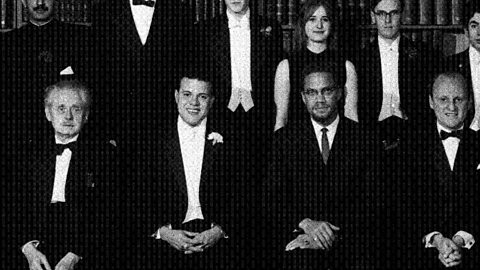
When Malcom X and Hugh McDiarmid debated at Oxford
The American politcial activist and Scottish writer shared a platform in 1964.
During the series we hear how this revolutionary document is thought to have influenced America's Declaration of Independence, and how its radical ideas were shared by US political activist Malcolm X.
In 1964, just months before his assassination, he took the stage at a remarkable Oxford Union debate with Scottish poet Hugh MacDiarmid.
Both men argued for the motion: "Extremism in the defense of liberty is no vice; moderation in the pursuit of justice is no virtue".
These two men of different nationalist ideologies from seemingly opposing cultural divides, shared a platform together arguing for the use of force to resist oppression.
Malcolm X claimed it should be carried out by whatever means necessary to bring about justice where there is injustice, while Hugh MacDiarmid invoked the opening quote from the Declaration of Arbroath in his justification of civil disobedience.
-
![]()
The Declaration o Arbroath is the maist Important letter ye havnae heard o
Alistair Heather breaks down the significance of the Declaration of Arbroath
-
![]()
The Declaration of Arbroath
Billy Kay presents a major series on one of the most iconic moments in Scottish history
-
![]()
The most famous letter in Scottish history?
The Declaration of Arbroath, written 700 years ago, continues to inspire and divide opinion.
-
![]()
Free Thinking: The Declaration of Arbroath
Anne McElvoy and guests discuss the 700th anniversary of the Declaration of Arbroath and Scottish politics today.
Latest features from ÃÛÑ¿´«Ã½ Scotland
-
![]()
'Wild swimming helps me process the grief of losing my son'
The benefits of cold water therapy.
-
![]()
Winter adventures are appealing, but an expert advises caution
Trips in winter require particular knowledge and skills.
-
![]()
The rescuers: Why volunteers risk their lives in mountain emergencies
Landward meets members of the Cairngorm Mountain Rescue Team.
-
![]()
‘Look for the light’ – practical tips to help you through another winter with SAD
Useful advice and tips to combat low moods at this time of year.
-
![]()
How you could be a binge drinker without even knowing
Binge drinking is classed as fewer units than many people may realise.
-
![]()
How chocolate biscuits and drama classes helped one man leave prison behind
The healing power of creativity.
-
![]()
'When people believe in you, it’s life-changing'
Author Graeme Armstrong revisits the man who helped turn his life around.
-
![]()
The 'breath-taking' display of US birds swept on to British soil
Recent storms have brought rare birds to our shores.
-
![]()
Six things we learned about Alan Cumming on Take the Floor (Spoiler: includes accordions)
The actor spoke to Take the Floor's Gary Innes.
-
![]()
How street gangs trap young men in a dangerous cycle of violence
The almost inescapable pull of life in a gang.
-
![]()
Why stylist Gok Wan believes there's no such thing as bad fashion
The fashion expert says we should stop following rules and do what feels right.
-
![]()
Is sending a CV still the right way to apply for a job?
They've been central to job applications for years, but are they worth it?

